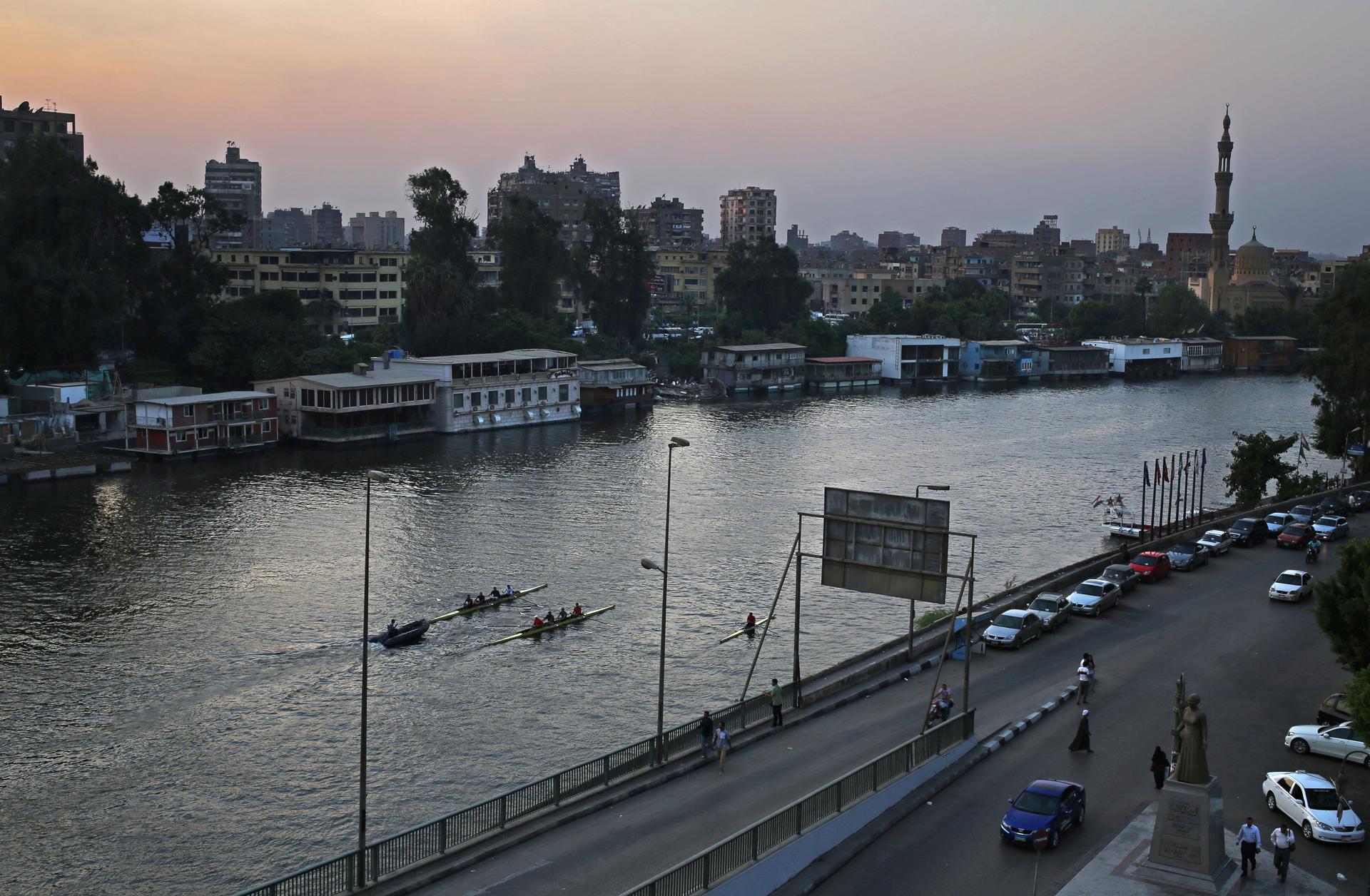The Egyptian govt has begun demolishing Cairo’s iconic houseboats
On the banks of the Nile River in Cairo sit about 30 houseboats, some of them a hundred years old.
They’re more like floating homes — attached to the banks but also movable.
One with light blue walls and white lattice railing belongs to 88-year-old Ekhlas Helmy, who is also known as Madam Ikhlas. She lives here with her dogs, cats and visiting geese.
Helmy and her siblings were born on a houseboat, she told an Egyptian media outlet.
“We had a happy life,” she continued. “We went on outings on the Nile.”
The boathouse is a small oasis for her, she said, in the middle of the chaos of Cairo, which is home to about 10 million people.
The Egyptian government has threatened to remove the houseboats for years, claiming they were built illegally and without proper permit. This past week, the fight came to a head after some boathouse owners, including Helmy, received eviction notices. Critics of the move say these are people’s homes and that the houseboats are an important part of Cairo’s cultural heritage that should be preserved.
“[Helmy] doesn’t know anything but living on the Nile. She feels that if she lives between brick walls she will die,” said Egyptian writer Yasmine el-Rashidi, who visited Helmy after she heard the news.
“You’re 88 years old, you have six days to pack up your life long home, you really don’t have anywhere else to go.”
The government said it has given residents plenty of notice.
Ayman Anwar, of the Administration for the Protection of the Nile River, said in an interview on Egyptian TV this past week that the president issued a directive in 2020 prohibiting all residential houseboats on the Nile.
“We deal with people in the light of the law,” he said, according to Ahram Online news website, adding that since 2020, people have no longer had valid docking licenses or licenses for the houseboats themselves, which is why they are now illegal.
Another official, Mohamed Abdel Ati, the irrigation minister, also publicly stated that the houseboats were built without proper government permits, making them illegal.
This week, demolition teams got to work.
Omar Hamilton, a British Egyptian filmmaker, has been watching from his house on the river.
“We got a destruction order saying that our boat is going to be removed or destroyed on July the 4th, and we’ve been watching the boats one by one disappear.”
Owners and residents say that if these houses go, part of the city’s heritage is lost.
Some of the most popular scenes in old movies have been filmed on those boats. British troops stayed in them during World War II.
Writer Rashidi pointed out that the houseboat demolitions are part of a worrying trend.
“Unfortunately, in the past two years, this government — led really, by the army — has been on a rampage bulldozing down tens of thousands of kilometers of old buildings, heritage, cemeteries, and in its place are coming up either highways and bridges or high-rises,” she said.
Rashidi and Hamilton said that the government hasn’t clearly stated what it wants to do with the space. Some residents have been told that they can keep their homes if they turn them into cafés.
That’s out of the question for Helmy, Rashidi said.
“She’ll never turn it into something commercial. It’s her home. It’s her entire life.”
Activists are trying to stop the demolitions. A petition to save the houseboats got more than 4,000 signatures. The Egyptian and international media have picked up the story as well.
But activists and residents like Rashidi are aware of the risks involved in protesting against government decisions.
In the past few years, President Abdel Fattah al-Sisi has drastically cracked down on dissent.
“On the one hand, of course, there are risks involved with a certain kind of community organizing,” Rashidi said. “On the other hand, I think that we’re at this point where we have no choice.”
For her, it is hard to imagine Cairo without these iconic boats and if the government continues the demolitions, she said, it will change the character of the river she has always known.
The story you just read is not locked behind a paywall because listeners and readers like you generously support our nonprofit newsroom. If you’ve been thinking about making a donation, this is the best time to do it. Your support will get our fundraiser off to a solid start and help keep our newsroom on strong footing. If you believe in our work, will you give today? We need your help now more than ever!
